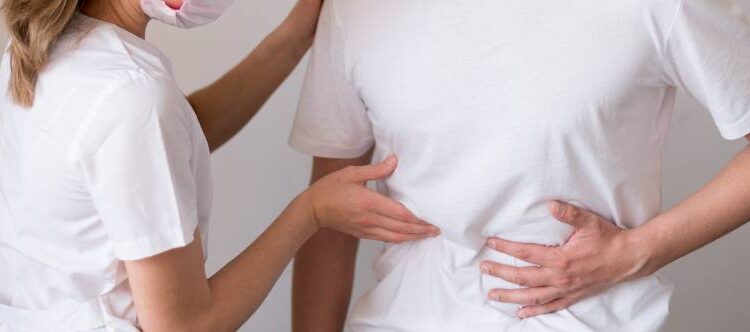When should I be worried about drooling?
- Written by: Department Of Ear, Nose & Throat (ENT)
- Published: April 5, 2021
- 4 min Read


Drooling is the flowing of saliva from the mouth. It is a common symptom for numerous medical disorders of nose, ears, throat, and even neurological problems. If drooling occurs in toddlers or new-born babies, then that is perfectly normal. It is usually a sign that the baby is going to start teething. Moreover, there is no need for concern. But, when it occurs in adults or the cause is not clear, then that is cause for alarm.
Causes of Drooling (Sialorrhea)
Drooling mainly occurs when there is excessive production of saliva within the mouth. Check out some of the causes listed here.
- Sore throat
- Tonsillitis
- Obstruction in the nasal passages
- Allergies
- Sinusitis
- Anaphylaxis
- Pregnancy
- Mononucleosis
- Strep throat
- Autism
- Muscular dystrophy
- Peritonsillar abscess
- Epiglottitis
- Retropharyngeal abscess
- Down syndrome
- Gastroesophageal Reflux Disease (GERD)
- Parkinson’s disease
- Multiple sclerosis
- Cerebral palsy
- Stroke
- Amyotrophic lateral sclerosis (ALS)
- Dental Malocclusion
- Hyperemesis Gravidarum
- Certain medications
When does drooling become worrisome?
If you are dealing with toddlers or infants, then drooling is quite normal. But, if you are suffering from excessive drooling, then getting medical attention is a wise decision. You can seek a doctor consultation if you have any of the following scenarios.
- The drooling starts all of a sudden.
- Excessive drooling causes choking or gagging sensations.
- The condition is not due to teething.
- The occurrence of fever or issues in breathing in children
- The diagnosis of the cause of drooling is unknown.
- When drooling worsens quickly along with other symptoms. You can look out for signs like inflammation of the lips, tongue, and face. Also, there can be difficulty in breathing.
Keep in mind that neglecting such medical conditions can be harmful. It can ultimately lead to more complications like aspiration, choking, etc.
Treatment options for drooling
The treatment of drooling depends on the age of the individual and the underlying cause. If the drooling occurs to a baby under four years old, the doctors will simply advise you to work on the teething.
Treatment is usually meted out when it becomes severe. For instance, if the saliva drips on clothes or you are unable to control it, then the doctor can suggest some methods. But, these treatment options are different from person to person. For this, the doctor performs some diagnostic tests and then chalks up a plan.
In the majority of the cases, treatment for the underlying cause solves the drooling issue. For example – if the cause is tonsillitis, then removing or reducing the tonsils can improve the condition.
But, there are some cases when the cause itself is not curable. When that happens, the doctors can suggest some medications to decrease the production of saliva.
You can also limit the consumption of sugary food items. Also, ensure that you wipe the drool with a dry but clean cloth.
Drooling is a developmental part of children. But, excessive drooling or any other associated symptoms need immediate medical attention. There are several medical problems that can cause drooling. Thus, visiting the doctor will help in the right diagnosis. Drooling can easily be cured with medications or therapies. You must follow the advice of the healthcare professionals rigidly to get rid of the problem.
Related Read
What are most common sleep disorders? How are they treated?
Sleep disorders are medical conditions that affect an individual’s ability to sleep daily. There are numerous reasons that can contribute to this disorder. It might not seem serious, but sleeping issues are actually a global epidemic that hampers the health standard and life quality of about 45% of the global population.
Patients also want to know


When should I be worried about drooling?
Drooling is the flowing of saliva from the mouth. It is a common symptom for numerous medical disorders of nose, ears, throat, and even neurological problems. If drooling occurs in toddlers or new-born babies, then that is perfectly normal.


What Causes Loss of Hearing?
Loss of hearing occurs when you are not able to hear completely or partially. It can also happen to both or one of the ears. Usually, the hearing loss progresses with age. There are mainly three types of hearing loss.
Warning: Trying to access array offset on value of type null in /home/drr41ih765mp/public_html/wp-content/plugins/jblog-elements/includes/class/elements/views/view-abstract.php on line 142
Warning: Trying to access array offset on value of type null in /home/drr41ih765mp/public_html/wp-content/plugins/jblog-elements/includes/class/elements/views/view-abstract.php on line 142
Warning: Trying to access array offset on value of type null in /home/drr41ih765mp/public_html/wp-content/plugins/jblog-elements/includes/class/elements/views/view-abstract.php on line 142
Warning: Trying to access array offset on value of type null in /home/drr41ih765mp/public_html/wp-content/plugins/jblog-elements/includes/class/elements/views/view-abstract.php on line 142
Warning: Trying to access array offset on value of type null in /home/drr41ih765mp/public_html/wp-content/plugins/jblog-elements/includes/class/elements/views/view-abstract.php on line 142
Warning: Trying to access array offset on value of type null in /home/drr41ih765mp/public_html/wp-content/plugins/jblog-elements/includes/class/elements/views/view-abstract.php on line 142
Warning: Trying to access array offset on value of type null in /home/drr41ih765mp/public_html/wp-content/plugins/jblog-elements/includes/class/elements/views/view-abstract.php on line 142
Warning: Trying to access array offset on value of type null in /home/drr41ih765mp/public_html/wp-content/plugins/jblog-elements/includes/class/elements/views/view-abstract.php on line 142
Related Posts
Understanding Kidney Stones and Treatment Options
What are the common causes of kidney stones?Kidney stones can be caused by various factors including recurrent infections like urinary ...
Cardiac Issues in Women
What are some cardiac issues that women should be aware of? Heart disease is the most common cardiac issue that ...
This Women’s day -Know more about Women Health
What is the theme for International Women’s Day 2023 and why is it important? What is the theme for International ...
Does your body warn you before a Heart Attack?
A heart attack usually occurs when the blood cannot flow to the heart smoothly. Also known as myocardial infarction, a ...






